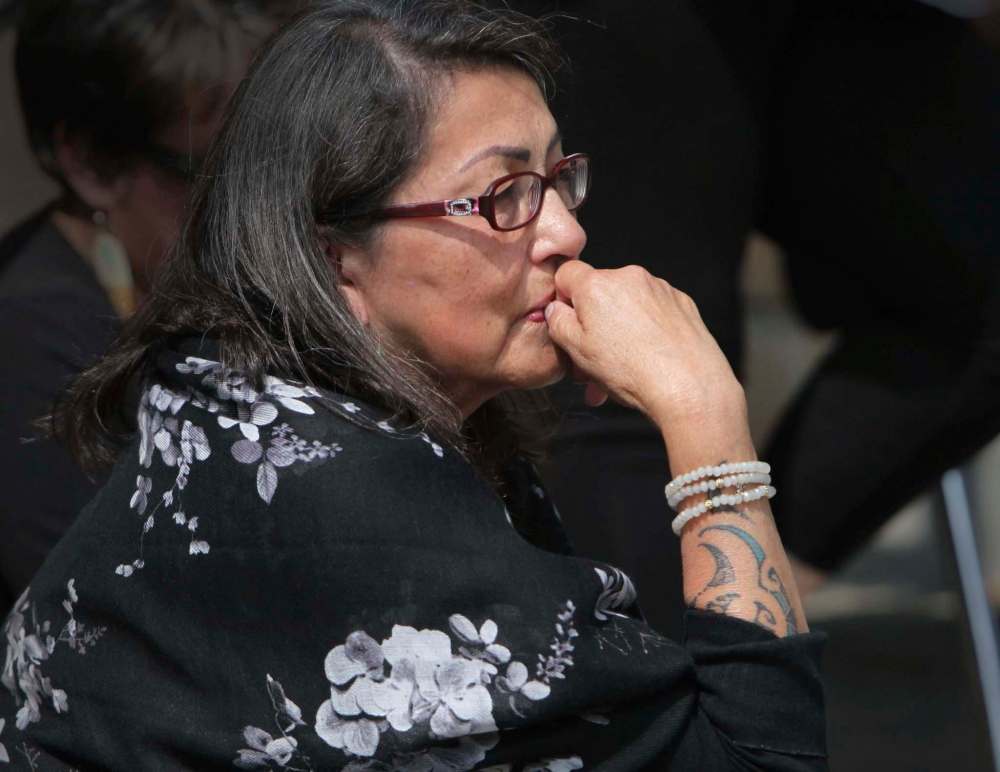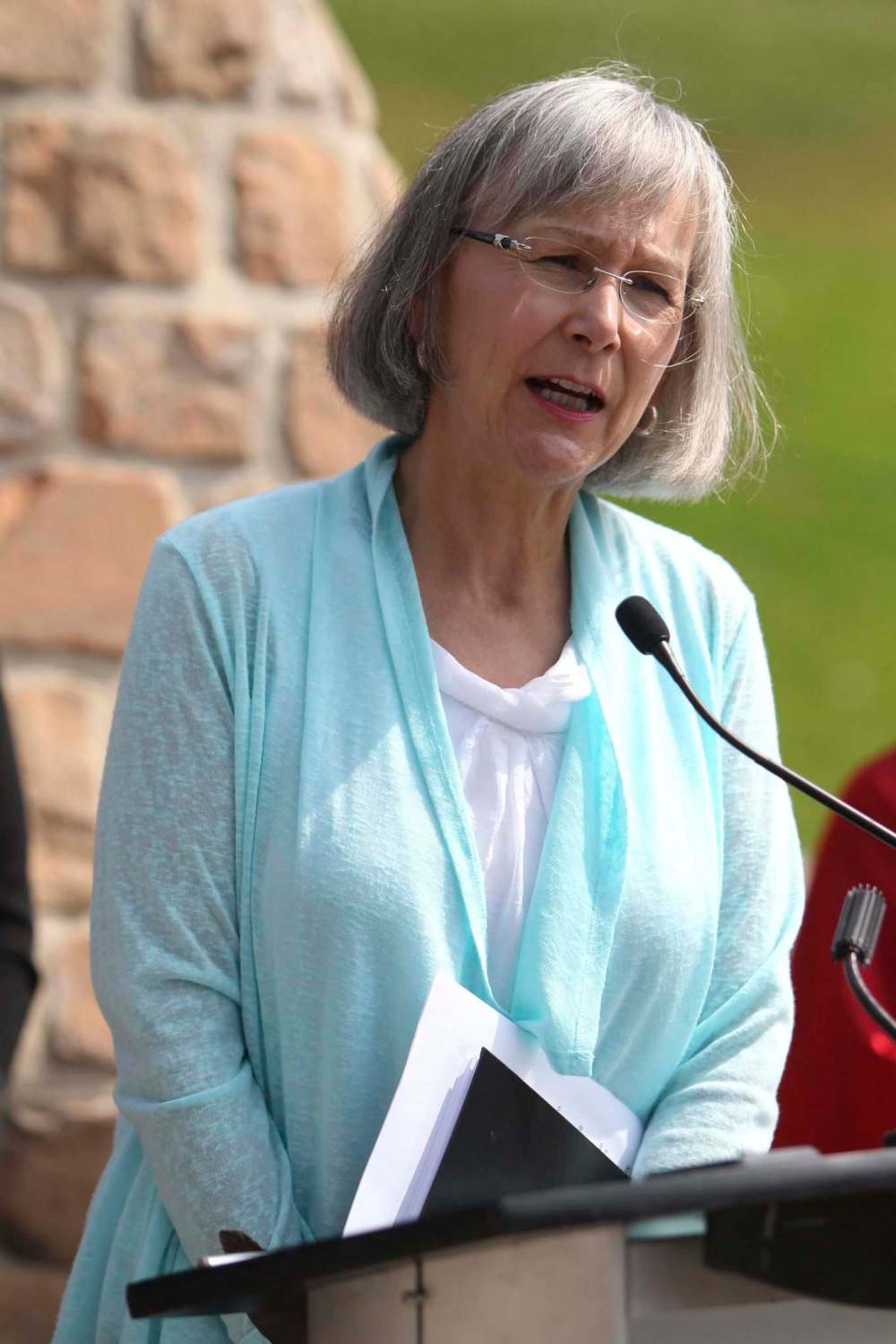MMIWG forum wraps up
Advertisement
Read this article for free:
or
Already have an account? Log in here »
To continue reading, please subscribe:
Monthly Digital Subscription
$1 per week for 24 weeks*
- Enjoy unlimited reading on winnipegfreepress.com
- Read the E-Edition, our digital replica newspaper
- Access News Break, our award-winning app
- Play interactive puzzles
*Billed as $4.00 plus GST every four weeks. After 24 weeks, price increases to the regular rate of $19.95 plus GST every four weeks. Offer available to new and qualified returning subscribers only. Cancel any time.
Monthly Digital Subscription
$4.99/week*
- Enjoy unlimited reading on winnipegfreepress.com
- Read the E-Edition, our digital replica newspaper
- Access News Break, our award-winning app
- Play interactive puzzles
*Billed as $19.95 plus GST every four weeks. Cancel any time.
To continue reading, please subscribe:
Add Free Press access to your Brandon Sun subscription for only an additional
$1 for the first 4 weeks*
*Your next subscription payment will increase by $1.00 and you will be charged $16.99 plus GST for four weeks. After four weeks, your payment will increase to $23.99 plus GST every four weeks.
Read unlimited articles for free today:
or
Already have an account? Log in here »
Hey there, time traveller!
This article was published 24/08/2017 (3073 days ago), so information in it may no longer be current.
A forum for commissioners of the National Inquiry into Missing and Murdered Indigenous Women and Girls concluded Thursday in Winnipeg, and the inquiry’s chief commissioner, Marion Buller, called it “nothing less than wonderful.”
Buller, along with the other four inquiry commissioners, spent three days in the city studying Indigenous laws, engaging with academics and discussing the future of the inquiry itself, as well as interacting with community members, survivors of abuse and families of women affected by the decades-old national crisis.
“The common theme through everything that we’ve heard is the importance of our women and girls and the need for their protection,” Buller said at The Forks.

“We’ve had recommendations from families and survivors about how to do our work better — we’ve taken great note of that,” she said. “We came here to Winnipeg to open a space where we could learn more about some Indigenous laws, because there are so many that we’ve yet to learn about.”
Overall, Buller referred to the forum as a learning experience.
While some positive steps were made, Sandra Delaronde, co-chairwoman of the Missing and Murdered Indigenous Women and Girls Coalition of Manitoba, said they’ve been a long time coming.
“I think what happened today shows that the commission can listen to the advice of the community. It’s taken them a year to listen, but they made that change today in how they apply Indigenous legal processes,” she said.
Still, Delaronde asserted the coalition’s stance the inquiry be reset in order to reassess the entire process — which has been subject to scrutiny from Indigenous communities and the public at large since it began last September.
“We are, as a coalition, very supportive of a national inquiry,” she added. “Unless the government is prepared to take action, we’re all just involved in an exercise.”
The inquiry has had just one set of testimonial hearings for victims’ families, held in the spring in Whitehorse. More hearings are scheduled next month in Thunder Bay, Ont., and Oct. 16 in Winnipeg.
Since its start, the inquiry has been plagued by a series of high-profile resignations, a perceived lack of transparency,and communication issues. While it addressed Indigenous law and decolonization fundamentals, some victims’ family members called the Winnipeg forum’s usefulness into question.
“This is for academics, mostly,” Maggie Cywink — whose sister, Sonya Nadine Mae Cywink, was killed near London, Ont., in 1994 in a still-unsolved homicide — told the Free Press this week. “It’s certainly not useful for families.”
When asked Thursday about the purpose of the forum, inquiry commissioner Qajaq Robinson discussed at length the importance of looking at issues surrounding the crisis through multiple lenses.
“If we’re going to look at causes, we have to look at the broad systemic causes, and that includes the law,” she said. “We’d be remiss if we looked at this without looking at the laws of this land, which are the Indigenous legal orders.”
Thelma Morrisseau, a grandmother who attended the forum, agreed it was a positive step to further incorporate Indigenous law into the process, but she still was frustrated by certain aspects of the inquiry.

“I’m not a politician, so I don’t want to be critical of anyone, but I do want them to listen to what families are suggesting,” Morrisseau said, adding the inquiry should matter to everyone in Canada, not just Indigenous communities affected.
Those suggestions include holding future meetings in venues “where Indigenous people feel more grounded and safe,” such as Winnipeg’s Thunderbird House or the Ma Mawi Wi Chi Itata Centre, for example.
“You want people to tell their stories, but they have to feel safe doing it,” Morrisseau said. (Feedback on venues will be taken into account in the future, Robinson said.)
Buller said safety and accessibility factor heavily into the proceedings, and she maintained those providing testimony, along with a support person, will be covered financially to remove boundaries of attending future hearings.
“Our plan is we have to go north, we have to go to small communities,” she said. “That’s where the survivors are. We have to go to them.”
Despite criticism, Buller said the inquiry will continue according to schedule. The first interim report is due Nov. 1. The first draft is nearly complete, but won’t include extensive facts or recommendations because the inquiry won’t yet have heard all testimonies.
“We intend to move forward with our schedule, but we’re going to do it in a better way based on what we’ve heard this week,” she said.
— with files from Alexandra Paul
ben.waldman@freepress.mb.ca

Ben Waldman is a National Newspaper Award-nominated reporter on the Arts & Life desk at the Free Press. Born and raised in Winnipeg, Ben completed three internships with the Free Press while earning his degree at Ryerson University’s (now Toronto Metropolitan University’s) School of Journalism before joining the newsroom full-time in 2019. Read more about Ben.
Every piece of reporting Ben produces is reviewed by an editing team before it is posted online or published in print — part of the Free Press‘s tradition, since 1872, of producing reliable independent journalism. Read more about Free Press’s history and mandate, and learn how our newsroom operates.
Our newsroom depends on a growing audience of readers to power our journalism. If you are not a paid reader, please consider becoming a subscriber.
Our newsroom depends on its audience of readers to power our journalism. Thank you for your support.

